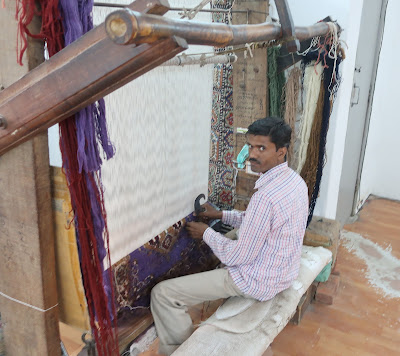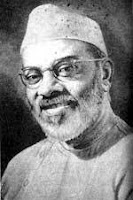Alexander
Hamilton was one of the Founding Fathers of the United States. He served as secretary
to the Treasury from 1789 to 1795 during the presidency of George Washington.
I knew little about Alexander Hamilton’s contribution to American economic policy before reading Samuel Gregg’s book, The Next American Economy: Nation, State, and Markets in an Uncertain World, 2022. Gregg suggests that America faces a choice between a form of state capitalism – top-down interventionism focused on achieving political objectives such as greater economic security for specific groups and “national security” – and a free market economy. He argues that in making the case for free markets it is helpful to take another look at the ideal of a modern commercial republic as espoused by Alexander Hamilton.
Centralization of powers
Prior to
reading Gregg’s book, I knew that Hamilton had argued successfully for greater
centralization of government powers than prevailed in the original
confederation. On that basis, I had entertained the idea that he might possibly
have been responsible for much that is wrong with the U.S. today.
Gregg
presents a more positive view of Hamilton’s contribution. He suggests that integration
of the states into a more unified commercial republic made it easier for Hamilton
to apply principles of free trade among the states and between the U.S. and
other countries.
Gregg’s line
of reasoning poses a challenge both to libertarian globalists, who see national
governments as the source of barriers to the functioning of free markets, and to
economic nationalists who want governments to prevent foreign economic
competition because they see it as a threat to national sovereignty. He challenges
libertarian globalists by suggesting that “failure by the government to smooth
the economic ups and downs which are part of life in a market economy risks
opening the door to political movements that have no particular regard for
human freedom”. He challenges economic nationalists by suggesting that tariffs
and other measures that protect of American industry from foreign competition are
harmful to Americans.
It isn’t necessary for
libertarian globalists, like myself, to abandon utopian thinking in order to see merit in effective unilateral
action by national governments to promote free trade. At a national level, the
case for free trade rests on it providing individual citizens and their
descendants with the prospect of better opportunities than would otherwise be
available to them.
To eliminate
the excesses of statism, it is necessary for political leaders to exercise
statecraft (or what Adam Smith and David Hume referred to as “the science of
the legislator”. As Gregg puts it Smith and Hume recognized that:
“the knowledge furnished by … integration of
moral, political, and economic inquiry needed to be brought to bear upon
society by statesmen and governments in the interests of its improvement”.
Gregg notes
that although Edmund Burke’s involvement in economic policy was “attuned to
political realities” he leaned strongly towards promoting greater commercial
freedom within Britain’s empire and between Britain and other nations.
America’s Founding
Fathers, including Alexander Hamilton, were also influenced by Adam Smith and
David Hume.
Hamilton’s
vision of a commercial republic
Samuel Gregg
explains how Hamilton advanced his vision of a commercial republic in his contributions
to the Federalist Papers and in his role as secretary to the Treasury. Hamilton’s
vision of a modern civilized nation combined republican government and a
private enterprise economy, with merchants subject to the discipline of
competitive markets. He hints that character traits that make for commercial
success – industry, innovation, economy, self-restraint, honesty, prudence – are
also republican virtues.
Hamilton argued
for free trade between the states and for revenue tariffs only on international
trade. He suggested that tariffs “force industry out of its more natural
channels into others in which it flows with less advantage”. He maintained that
trade policy should be driven by national interest and was adamantly opposed to
use of trade sanctions as an instrument of foreign policy.
What
next?
Samuel Gregg
ends his book by acknowledging that he doesn’t know whether there is a real
possibility that an American commercial republic could emerge to shape America’s
future. He hopes that it could on the basis that he can “see no reason why
America cannot embrace the habits, incentives, and disciplines associated with
markets while also grounding them in the language, norms, and virtues of the
American experiment”.
Since 2022,
when Gregg’s book was published, it has become clearer that the U.S. is likely
to continue, for a few more years at least, down the path towards greater international
trade protectionism. The choice that the
two major political parties are offering voters in the 2024 presidential
election certainly does not include a candidate offering an alternative to higher trade barriers.
Unfortunately,
the adverse impacts of increased trade protectionism in the U.S. cannot be
guaranteed to result in a strong impetus for policy reversal. The U.S. economy
is sufficiently large and diverse that increased barriers to international
trade are likely to have relatively minor adverse impacts by comparison with
those that would occur in most other countries if they followed similar
policies.
It looks to
me as though trade liberalisation is unlikely to occur in the U.S. until influential
politicians come to see merit, from a foreign policy perspective, in supporting
multilateral efforts to encourage trade among countries that have more than
minimal regard for free market principles.
Meanwhile, Samuel
Gregg’s book will hopefully be widely read in other countries where some current political
leaders may be more receptive to Alexander Hamilton’s vision of a commercial republic
based on free market principles.
Conclusion
Samuel
Gregg’s book, The Next American Economy, urges Americans to adopt the
ideal of a modern commercial republic, as originally espoused by Alexander
Hamilton. Hamilton argued for the U.S. to adopt, unilaterally, the principle of
free international trade on the grounds that this would serve the economic
interests of Americans and promote republican virtues.
Unfortunately,
American political leaders do not currently seem to be in the mood to re-endorse
Hamilton’s vision of a modern commercial republic.
Hopefully,
Gregg’s book will be widely read in other countries where some political
leaders may be receptive to messages about the contemporary relevance of the role
that free market polices played at an early stage in the economic and social development
of the United States.
















